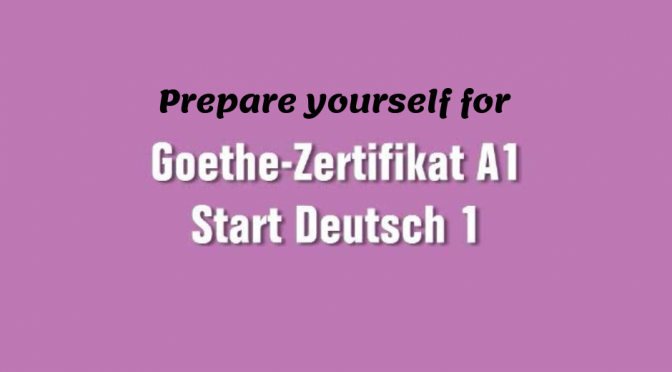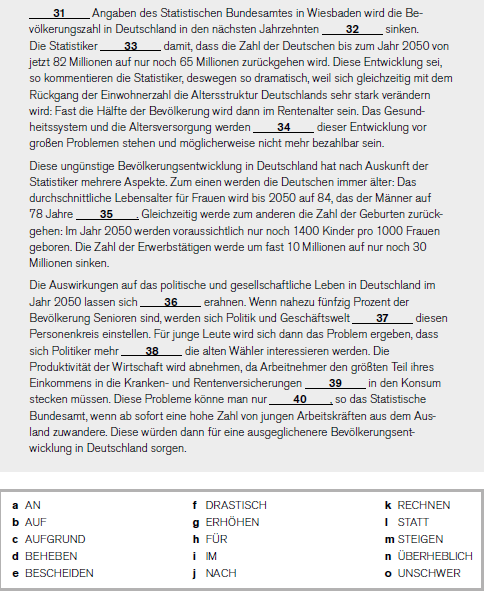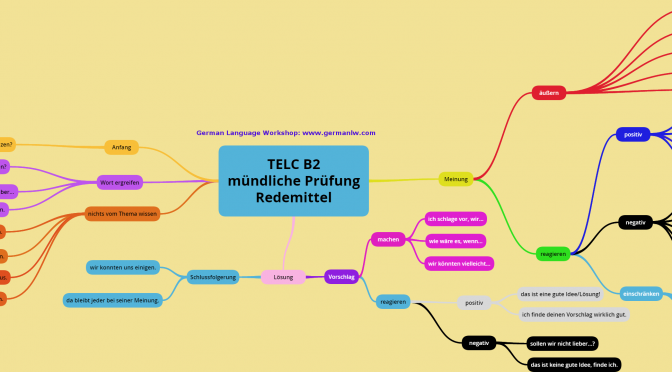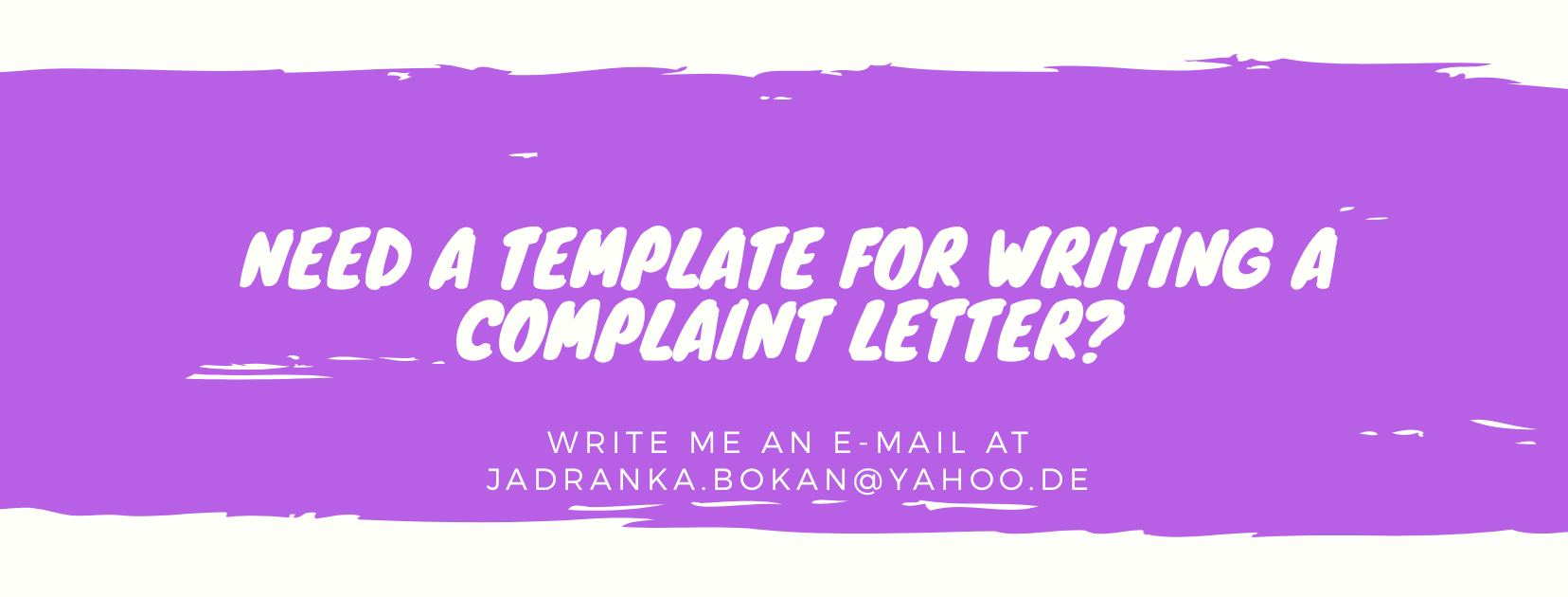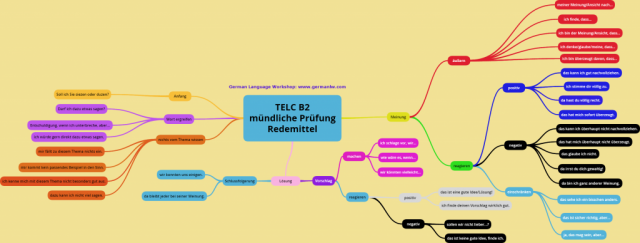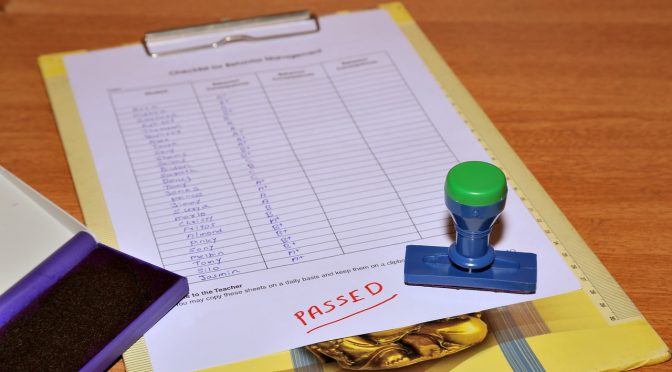Author: Jadranka Bokan
The Goethe-Zertifikat exam for the A1 level, or Start Deutsch 1, is an exam that not everybody should take, but only those whose spouse is already in Germany and they want to move to Germany too. In that case, which is also known as Ehegattennachzug, the other spouse (the one that lives outside Germany) needs to pass the Goethe-Zertifikat A1 exam.
In the following text you will find everything that you should know about the Goethe-Zertifikat A1: Start Deutsch 1 exam, including valuable resources for learning German at the A1 level:
- list of irregular verbs at the A1 level (made by myself)
- official word list at the A1 level (650 words, provided by Goethe Institute)
- words at the A1 level arranged in topics (provided by Deutschlernerblog)
- example letters at the A1 level (provided by Time to Learn German)
- official model test (provided by Goethe Institute)
- official video that shows how the oral part of this exam looks like (provided by Goethe Institute)
- official “learn German on the go” app for learning German at the A1 level (provided by Goethe Institute)
- preparation book for the exam:
- detailed information on how this exam exactly look like (description in English)
This exam consists of the following parts:
| skills | parts | texts | points | importance | minutes |
| I listening | 1
2 3 | dialogues
announcements messages | 6
4 5 | 25 % | 20 |
| II reading | 1
2 3 | letters, faxes
advertisements messages | 5
5 5 | 25 % | 25 |
| III writing | 1
2 | completing forms
writing e-mails | 5
10 | 25 % | 20 |
| IV speaking | 1
2 3 | introducing yourself
getting some information | 3
6 6 | 25 % | 15 |
And here are detailed descriptions for every single part:
I Listening (HÖRVERSTEHEN)
Listening – Part 1:
- 6 short dialogues between 2 persons on the street, at home, at work etc.
- 1 task for each dialogue (6 tasks in total)
- Each text is played 2 times
- Length: about 7 minutes (total time)
- Tasks consist of W-questions
- Before the listening part starts you have few seconds time to read questions and mark the W-words (wann / wo / woher, / welcher…)
- You are given 3 answers (a, b, c) and each answer consists of 1 picture plus 1 word
- If you don’t understand some word, it’s not big deal, illustrations are there to help you
- During the 1. listening try to understand the topic i.e. to recognize the topic the people are talking about
- After the 1. listening look at the answers and if you already know the answer, mark it
- After the 2. listening check out whether you have marked the correct answer
!!! it happens often that you can hear all the three answers in the text, but there is only one correct answer!
Listening – Part 2:
- 4 announcements, for example at the airport, on the railway station, on the bus or in the supermarket
- 1 task for every announcement (4 tasks in total)
- As an answer you should choose between „richtig“ and „falsch“
- Every task is given in 1 sentence and every one of them contain the verb SOLLEN
- You have 4 minutes time (total time)
- You listen every text only once (!!!)
- Before listening read all tasks and mark what people need to do
- After listening choose the correct answer (richtig / falsch)
Listening – Part 3
- 5 announcements or telephone messages = 5 tasks
- Spoken by your friends, people from the school, doctor’s office, mechanic shop or your office.
- You listen every text 2 times
- The same rules apply as for the listening part 1 (mark the most important words, W-questions, during the first listening try to understand what’s all about (the topic), mark the answer that you deem correct, and then after the 2. listening check whether you were wright)
- Lasts for about 5 minutes (total time)
- If you don’t understand some word, don’t panic. Tell yourself: I have understood everything – instead of: I haven’t understood anything
- Concentrate only on the most important words – those are the words that you need in order to resolve the task!
After this part you have 3 minutes time to write all your answers into the answer sheet
II READING (LESEVERSTEHEN)
Reading – Part 1
- 2 short texts e.g. letters, faxes, e-mails, notes from your friends, colleagues or other persons.
- 5 tasks in total (richtig / falsch) for boths texts
- You have 5 minutes time (total time)
- Before reading: read the tasks first and then the text; ask yourself: what pieces of information do I need to be able to resolve the task? Please bare in mind: there are more information in the text than you need.
- First read the tasks carefully, then look for relevant information in the text. Attention: these information are often given in the text with different words than in the task, for example: you see in the text „bei Regen“, while in the task it says: „bei schlechtem Wetter…“
Reading – Part 2
- Ads from the newspapers, internet etc.
- People are looking for an apartment, furniture or a used car.
- There are 5 tasks
- Every task contains 2 advertisements as an answer and only one is the correct one (a or b).
- You have 10 minutes time (total time)
- Read the task first. Ask yourself: what is the situation? Underline the relevant words. For example: Herr und Frau Melchior suchen eine Wohnung.
- Read the advertisment afterwards
- Relevant word pairs would be: mieten / vermieten, suchen / anbieten, kaufen / verkaufen
- Don’t forget the time! If you can’t decide for one of the ads, move on to the next task. You can return to them later.
Reading – Part 3
- 5 signs or notes that can be seen in shops, in the subway, a restaurant etc.
- Every text is associated with one task (richtig / falsch)
- You have 5 minutes time (total time)
- Read the task first and only then the text
- Underline relevant words in the task, for example: Man kann in dem Geschäft zurzeit nicht einkaufen
- Then underline the relevant word in the note, for example: Wir haben geschlossen.
III WRITING (SCHREIBEN)
Writing – Part 1 (Filling out a form)
- You get a form with missing parts / missing pieces of information
- You should complete some pieces of information for someone else, for example: their last name or date of birth
- These pieces of information are included in the text above the form
- You have 10 minutes time (total time)
- Look at the form first – some pieces of information are already there like first name
- Notice what piece of information is missing, for example: last name
- Now read the text above the form and look for and underline only the pieces of information that you need in order to be able to resolve the task, for example: last name
- The missing piece of information in the form can be: a word, a number or you can choose between several possibilities (and tick a box next to the correct answer)
- The missing pieces of information are marked with numbers: (1), (2), (3), (4), (5) – that’s how you should insert them in the answer sheet
Writing – Part 2 (Writing a letter)
- You should write a letter, fax, post card or an e-mail to a friend or to a colleague
- You get an instruction in the task why you are writing: for example, you can‘t come at the agreed time.
- Every task contains 3 points. You should write 1-2 sentences to every point.
- You should write approximately 30 words
- You have 15 minutes time
- Before writing: pay attention to who you are writing to i.e. are you writing a formal or an informal letter, for example: are you writing to your teacher or to your friend.
- Depending on the formality level you can start your letter as follows:
Formal:
Sehr geehrter Herr (last name), / Sehr geehrte Frau (last name),
or: Sehr geehrte Damen und Herren, (if you don’t know who exactly you are writing to)
informal: Lieber (first name) / Liebe (first name)
- At the end of the letter you should also make a difference depending on who you are writing to:
formal: Mit freundlichen Grüßen,
informal: Herzliche Grüße,
and then you write your name underneath this greeting, at the very end of the letter.
- After you read the task and the 3 points, underline the most important words.
- When writing avoid starting sentences with ich, er, sie… you should start instead with an information on time, place etc. For example: instead „ich bin jetzt in Salzburg“, you could write: „jetzt bin ich in Salzburg“, or: „es ist hier schön“, better: „hier ist es schön“. When you start a sentence with anything else than a subject you should pay attention to rules of the basic word order because the verb should be always on the second place in a declarative sentence! On the other hand, if a sentence starts with aber, denn, und, sondern, oder (the so called ADUSO words) – these words are, so to say, on the null place in a sentence, or, in other words – they stand outside of the sentence and they do NOT affect the position of the verb.
- When you’re done with writing, check whether you have answered the questions from all three points, then whether you have started and finished the letter in the right way and whether you have clearly and legibly written the text.
IV ORAL EXAM (SPRECHEN)
- consists of 3 parts
- takes place in a group of up to 6 people plus 2 examiners
- you communicate with the other people from your group and one examiner
- it lasts about 15 minutes for the whole group
Oral exam – Part 1
- You should introduce yourself to the group
- tell 5-6 sentences about yourself
- you get the following 7 words (questions) and introduce yourself by answering to them:
Name? (meaning: Wie heißen Sie?)
Alter? (meaning: Wie alt sind Sie?)
Land? (meaning: Woher kommen Sie?)
Wohnort? (meaning: Wo wohnen Sie?)
Sprachen? (meaning: Welche Fremdsprachen sprechen Sie?)
Beruf? (meaning: Welche Schule besuchen Sie? Was sind Sie von Beruf? Was studieren Sie?)
Hobby? (meaning: Was sind Ihre Hobbies?)
- You don’t have to give an answer to every single question, for example your age.
- After you introduce yourself, the examiner gives you 2 additional tasks:
- You should spell a word (Können Sie … buchstabieren?), for example, your first or last name, the name of your spouse, children, the name of your city, street or some other word. Your partner writes down what they have heard.
- You should spell some number, for example, your phone number, your birth date, house number, postal code. Your partner writes down what they have heard.
Oral exam – Part 2
- You get 2 topics related to every day life, for example: Essen und Trinken & Einkaufen
- Your task is to ask questions and answer them (you want to get a specific info by asking that specific question)
- Everybody gets one card with a word on it, for example Obst; the examiner says: Unser erstes Thema ist “Essen und Trinken”. Bitte ziehen Sie eine Karte. Zum Beispiel diese hier: Obst. Fragen Sie zum Beispiel: „Essen Sie gern Obst?“ Ihr Partner antwortet zum Beispiel: „Ja, sehr gern“.
- Cards related to Essen & Trinken: Obst, Brot, Wasser, Abendessen, Äpfel, Lieblingsessen, Mittagessen, Fisch, Gemüse, Frühstück
- Cards related to Einkaufen: Schuhe, Zeitung, Buch, Geschäft, Bäckerei, Kleidung, Computer, Handy, Stadtplan, Brille
- While you are preparing yourself for the exam, think about it what cards could appear in the exam and what questions you could ask
- Other topics: Beruf, Wochenende, Schule, Sport
- Beruf: Arbeitszeit, Kollegen, Spaß, Arbeitskleidung, Arbeitsplatz, Aufgaben
- Wochenende: Sonntag, Frühstück, Sport, Familie, Ausflug, Bücher
- Schule: Freunde, Lehrer, Computer, Sprachen, Essen, Hausaufgaben
- Sport: Lieblingssport, schwimmen, Wochenende, Abend, Ball, Fahrrad
Oral Part 3
- Every participant gets 2 cards with illustrated items on them
- Your task is to ask someone from the group for a favor or to respond to it
- The examiner says: bitte ziehen Sie eine Karte. Zum Beispiel diese hier (Fenster). You could say for example: Können Sie bitte das Fenster schließen? Your partner answers: Ja, gern. Sofort.
- In case that you don’t know what’s the word in German for the item on the card, feel free to ask your partner for help. You could say for example: Wie nennt man das, bitte? Was ist das bitte – Lieblingsessen? Ich verstehe das Wort nicht. Or: Können Sie das bitte wiederholen? or: Kannst du das erklären?
- Ask yourself – how can I ask polite questions?
Now that you know exactly what Goethe-Zertifikat A1: Start Deutsch 1 looks like, you are ready to take and pass this exam. Of course, I could assist you if you need some help. Just reach out to me.
With love, your German language teacher Jadranka.
Good luck!

